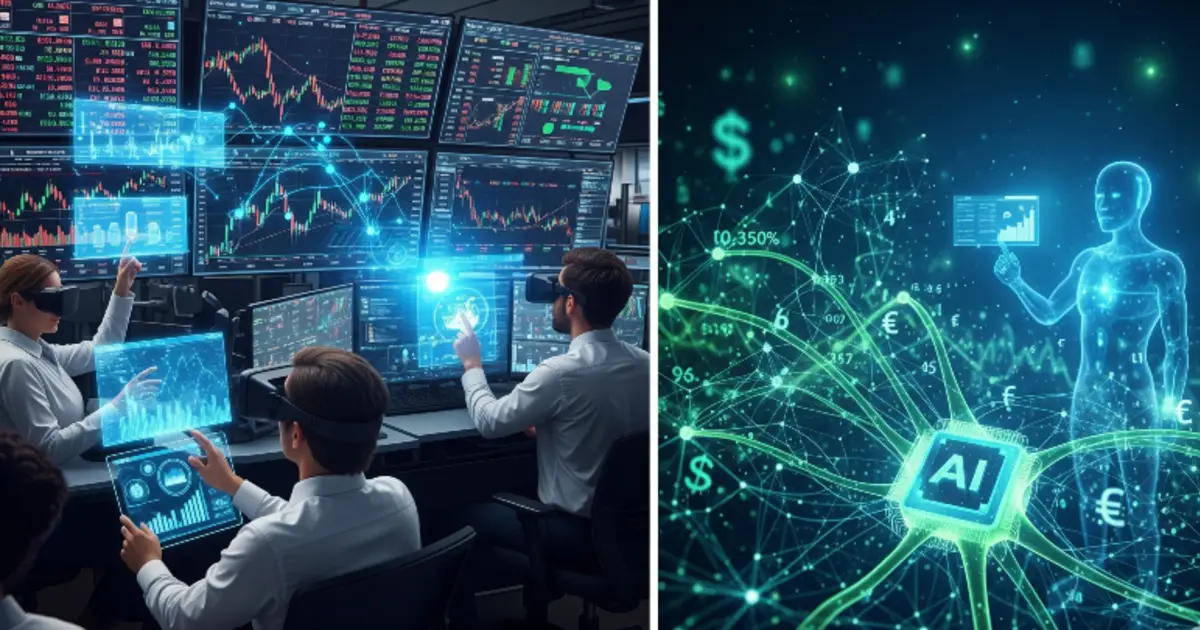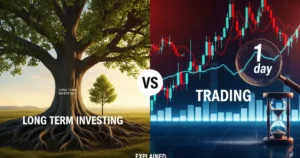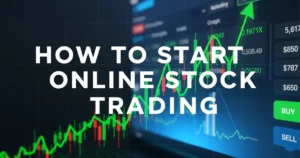Technology has always shaped financial markets, but the arrival of artificial intelligence is taking things to an entirely new level. From real-time data analysis to automated decision-making, AI is quietly but powerfully transforming how trading works. If you’re wondering how AI is changing the future of trading, you’re not alone — it’s one of the most talked-about shifts in the world of finance today.
Smarter and Faster Decision-Making
One of the biggest strengths of AI in trading is its ability to process massive amounts of data at lightning speed. Traditional traders often rely on charts, trends, and personal instincts. AI, on the other hand, can scan thousands of data points — including social media sentiment, breaking news, and market trends — all in seconds.
This means that trades can be made faster, more accurately, and with reduced emotional bias. In high-frequency trading, where milliseconds matter, AI algorithms can outperform even the most experienced human traders.
Algorithmic and Quantitative Trading
Algorithmic trading isn’t new, but AI is taking it to the next level. Instead of relying on pre-set rules, machine learning models can learn from past trades, adapt to market behavior, and refine strategies over time. This kind of “self-improving” system gives firms a competitive edge in highly dynamic markets.
Quantitative analysts, or “quants,” are now using AI to design models that are far more responsive and predictive than ever before. These systems can detect subtle market signals that might go unnoticed by the human eye.
Risk Management Gets an Upgrade
Risk is part of every trade — but AI is helping reduce it. By constantly monitoring portfolio exposure, AI systems can alert traders or even execute defensive moves when volatility spikes or certain thresholds are breached.
AI can also analyze market patterns to predict potential crashes or downturns, giving investors time to react. This isn’t just about profit; it’s about preserving capital and staying ahead of unpredictable market swings.
Retail Traders Are Benefiting Too
AI isn’t just for hedge funds or investment banks anymore. Many retail trading platforms now use AI to offer personalized insights, real-time alerts, and even robo-advisory services. Everyday investors can get recommendations based on their risk tolerance, goals, and market conditions — something that used to be available only to wealthy clients.
With AI-powered tools, even beginners can make smarter trading decisions without needing a finance degree.
Emotions Take a Back Seat
One of the most common reasons traders lose money is emotional decision-making. Fear and greed often override logic. AI, being data-driven, doesn’t have emotions. It follows strategy, not mood swings, and sticks to the plan even in uncertain conditions.
This helps reduce impulsive decisions, revenge trading, or panic selling — common mistakes that cost traders dearly.
The Role of Natural Language Processing (NLP)
Natural Language Processing, a branch of AI, is changing how traders interact with news and financial reports. NLP tools can scan news headlines, earnings reports, and tweets to detect sentiment, potential impact, and relevance to certain stocks or sectors.
This gives traders an edge by helping them react to news events before the broader market does.
What the Future Might Look Like
Looking ahead, AI is likely to play an even more central role in trading. We may see platforms that automatically learn from your past trades, offer smarter suggestions, or even run fully autonomous trading strategies. Regulatory bodies are also exploring AI tools to detect insider trading and market manipulation faster than ever.
In short, AI isn’t replacing traders — it’s empowering them. Those who learn to work with it will likely outperform those who ignore it.
Final Thoughts
AI is no longer a futuristic concept — it’s already reshaping the trading world. From boosting speed and precision to reducing risk and emotional errors, it’s clear that the future of trading will be powered by intelligent technology.
If you’re a trader or investor, now is the time to start understanding how these tools work. Because in the world of finance, staying ahead of the curve isn’t just smart — it’s necessary.



